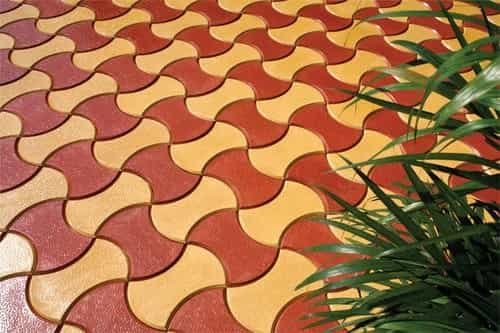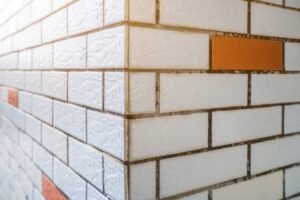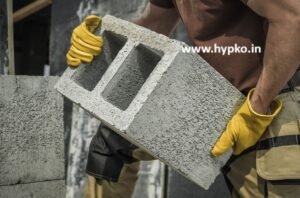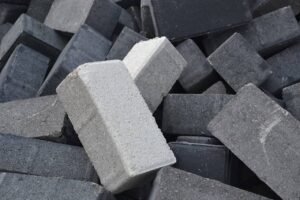Paver blocks, also known as concrete pavers or paving stones, are a popular choice for outdoor flooring due to their durability, versatility, and aesthetic appeal. They are commonly used for walkways, driveways, patios, and other outdoor spaces. In this article, we will discuss how paver blocks are manufactured, their different types, and their various applications.
Manufacturing Process of Paver Blocks:
The manufacturing process of paver blocks involves the use of concrete, cement, and aggregates such as gravel and sand. The ingredients are mixed in a concrete mixer, and water is added to form a paste-like consistency. This mixture is then poured into a mold, which is usually made of metal or plastic.
Once the mold is filled, it is vibrated to remove any air pockets and ensure that the mixture is evenly distributed. The mold is then left to cure for a certain amount of time, depending on the type of paver block being made. After the curing process is complete, the paver block is removed from the mold and left to dry.
Types of Paver Blocks:
There are several types of paver blocks available in the market. Some of the most popular ones include:
Interlocking Pavers: These are designed to fit together like a puzzle, making them easy to install and remove. They are available in a range of shapes and sizes, and can be used for a variety of applications.
Concrete Pavers: These are made from a mixture of cement, water, and aggregates. They are extremely durable and can withstand heavy traffic and harsh weather conditions.
Permeable Pavers: These are designed to allow water to flow through them, reducing runoff and preventing flooding. They are ideal for areas that experience heavy rainfall.
Natural Stone Pavers: These are made from natural stone such as granite, marble, and limestone. They are known for their durability and aesthetic appeal.
Applications of Paver Blocks:
Paver blocks have a wide range of applications. Some of the most common ones include:
Driveways: Paver blocks are an excellent choice for driveways due to their durability and ability to withstand heavy traffic.
Patios: Paver blocks can be used to create beautiful and functional outdoor living spaces. They are available in a range of colors and textures, making it easy to find the perfect match for any home.
Walkways: Paver blocks can be used to create walkways that are both functional and visually appealing. They are slip-resistant and can be easily customized to suit any design preference.
Pool Decks: Paver blocks are a popular choice for pool decks due to their slip-resistant surface and ability to withstand exposure to chlorine and other pool chemicals.
Landscaping: Paver blocks can be used to create beautiful landscaping features such as retaining walls, garden beds, and water features.
Advantages of Paver Blocks:
Paver blocks offer several advantages over other types of outdoor flooring materials. Some of the most significant advantages include:
Durability: Paver blocks are extremely durable and can withstand heavy traffic, harsh weather conditions, and exposure to chemicals.
Versatility: Paver blocks are available in a range of shapes, sizes, and colors, making it easy to find the perfect match for any application.
Low Maintenance: Paver blocks require very little maintenance and can be easily cleaned with a pressure washer or a simple mixture of soap and water.
Environmentally Friendly: Paver blocks can be made from recycled materials, and permeable pavers can help reduce runoff and prevent flooding.
Cost-effective: Paver blocks are an affordable option for outdoor flooring and can be easily installed without the need for specialized equipment or labor.
Conclusion:
Paver blocks are a popular choice for outdoor flooring due to their durability, versatility, and aesthetic appeal. The manufacturing process of paver blocks involves the use of concrete, cement, and aggregates such as gravel and sand. There are several types of paver blocks available in the market, including interlocking pavers, concrete pavers, permeable pavers, and natural stone pavers. They have a wide range of applications, including driveways, patios, walkways, pool decks, and landscaping.
Paver blocks offer several advantages over other types of outdoor flooring materials, including durability, versatility, low maintenance, environmental friendliness, and cost-effectiveness. With their ability to withstand heavy traffic, harsh weather conditions, and exposure to chemicals, paver blocks are a smart choice for anyone looking for a long-lasting and attractive outdoor flooring solution.
In conclusion, paver blocks are an excellent option for anyone looking for a durable, versatile, and cost-effective outdoor flooring solution. Whether you’re looking to create a beautiful patio, walkway, or pool deck, there is a type of paver block that is perfect for your needs. With their range of colors, textures, and sizes, paver blocks can be easily customized to match any design preference, making them a popular choice for homeowners and landscapers alike. So if you’re looking for a high-quality outdoor flooring solution that will stand the test of time, consider paver blocks for your next project.




